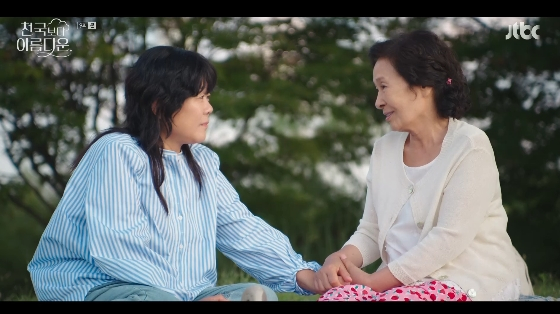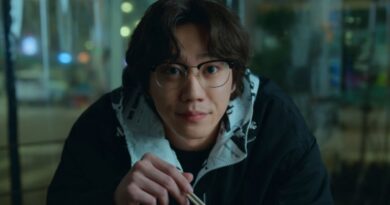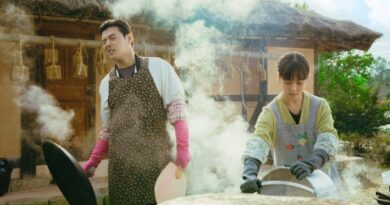Lee Jung-eun Revealed as Kim Hye-ja’s Birth Mother in Emotional Twist on ‘Heavenly Ever After’

In the latest episode of JTBC’s weekend drama Heavenly Ever After, a shocking and emotional revelation unfolded: Lee Jung-eun’s character, Lee Young-ae, was revealed to be the birth mother of Kim Hye-ja’s character, Lee Hae-sook.
The episode aired on the 17th centers on Young-ae’s torment upon encountering her abusive father in heaven. After paying for his sins in the afterlife, he has been sentenced to a poetic punishment called “paternal love.” Unable to bear the sight of him roaming freely in paradise, Young-ae confronts the Center Director (played by Chun Ho-jin), demanding an explanation.
A stunning twist follows when the Center Director reveals that he and Young-ae were once husband and wife in a previous life — and Lee Hae-sook is their daughter. In that former life, Young-ae, a former courtesan turned concubine, failed to raise Hae-sook properly and died unexpectedly while bringing home shoes as a gift for her.
Overwhelmed by guilt and longing, Young-ae lies beside Hae-sook for a final sleep, whispering, “My daughter Hae-sook…” and tearfully confesses, “Let me hold you and put you to sleep at least once. You fed me, sheltered me, and treated me like a daughter when I deserved none of it. Don’t ever forgive me.”
The next morning, the two go on a picnic. Hae-sook reflects, “I don’t know why I never thought to come to such a beautiful place with you until now,” and adds, “I’m sorry that all we shared were hardships.” Young-ae deeply apologizes, but Hae-sook reassures her: “You weren’t just my friend and sister, sometimes you were my mother too.”
As emotions swell, Hae-sook promises, “Let’s meet again after living until we’re tired of waking up every day. And next time, shower me with love, Mom,” bringing both characters to tears. In a poetic conclusion, Young-ae fades away in peace.
Unknown to Young-ae, Hae-sook had already learned of her true identity through the Center Director. Though initially devastated to find out her mother had abandoned her, Hae-sook chose forgiveness, saying, “I received more than I lost. You were my friend, my sister, and my mother when I needed you most.”



